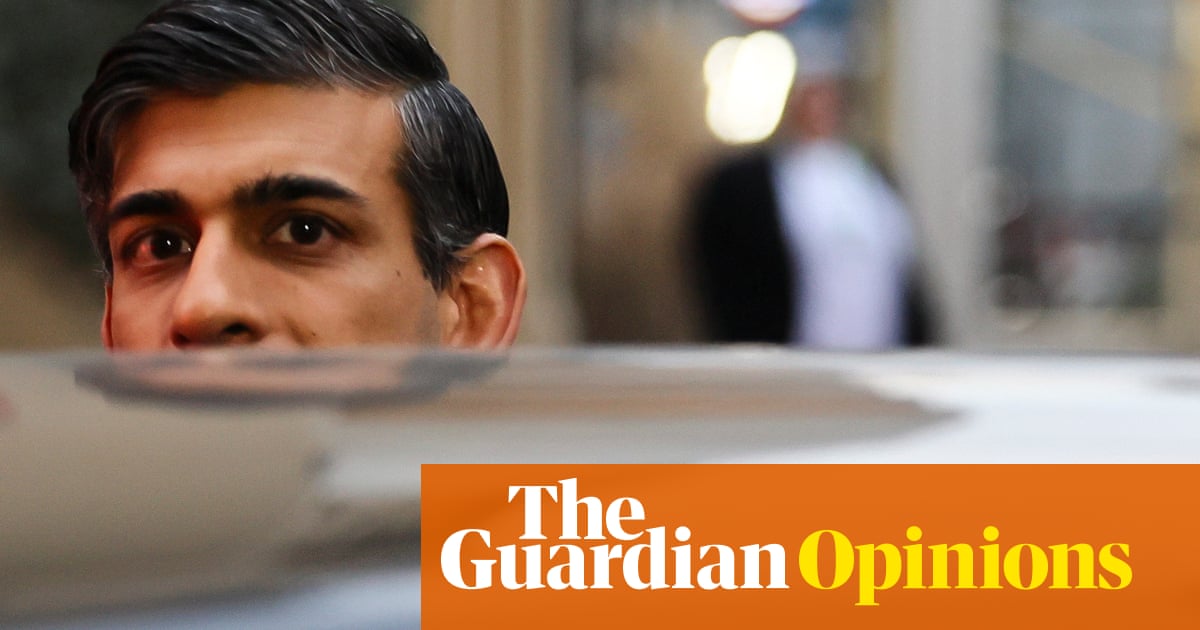
Liz Truss is now eluded by two major types of growth: economic and personal. The past few days have seen the former prime minister break her welcome silence with what her allies call a series of “interventions”. The one intervention that doesn’t seem to have happened is the type where they sit you down and give you the hard truths about your behaviour. That treatment oversight has resulted in a spectacle of lavishly preposterous blame-shifting and self-delusion.
As discussed here recently, both the previous two prime ministers – Truss and Boris Johnson – are at this game. We live in an era where people who have got all the way to the highest office in the land now hilariously claim structural discrimination against the fact that, after varying amounts of time, they just weren’t good enough. When both of these chancers left office, they had not simply passed their best-before date – they had sailed beyond the use-by date and moved formally into the realms of biohazard. Yet instead of bucking the f up and accepting this, they have turned into the political equivalent of “incels” – involuntarily rejected by the people who determine whether or not you get to be prime minister, and bleating about it in self-reflection-free style on every available forum.
“Was it the right decision?” Truss mused of aspects of her mini-budget in yesterday’s interview with the Spectator. “It’s very hard to tell.” To which the only conceivably sane reply must be: no it isn’t. NO IT ISN’T! This financial event resulted in sterling shitting the bed, complete turmoil on the bond markets, central bank intervention, mortgages going up, and the seriously perilous possibility that the UK would have to default on its debt. Amazingly, those hints appear to have been too subtle. Or as Liz puts it: “You never know what the counterfactual looks like.” Again: yes you do?! It looks like these things not happening because of the things you did.
The way she tells it, Truss has spent the past three months “trying to work out what happened” during her straight-to-meme time in No 10. She has now left her yarn-cobwebbed investigation wall to report the results back to the general public. Verdict: “I didn’t get everything right.” I mean … ya think? Arguably there was the odd flaw to the shortest premiership in British political history – and that includes the early 19th century guy who snuffed it with tuberculosis. But it seems that our flaws are the things that make us beautiful. Lettuces don’t actually rot – they just achieve their final form.
“I assumed on entering Downing Street that my mandate would be respected,” Truss now explains. “How wrong I was.” Is this the mandate from 81,000 serially wrong idiots? Righto. Perhaps the clue was in the process all along. You may have noted reports that the 1922 Committee is considering changing the rules so that a leadership challenge to Rishi Sunak could occur after May’s local elections, perhaps with a view to fulfilling the prophecy that in the future, every Tory MP will be prime minister for 15 minutes.
In the meantime, further eye-popping rebrands to the destruction wrought by Truss and her robot sidekick Kwasi Kwarteng are being attempted. The financial meltdown that was demonstrably caused by her own mini-budget has been firmly pinned on others. In Truss’s head, it is now something called “the LDI crisis”, named after the liability-driven investments somehow no one had warned her about, even though most of her lengthy Sunday Telegraph article and Spectator interview were spent apportioning blame to anyone in British economic life who might have served a warning function.
These include, but are not limited to: the Treasury, the Office for Budget Responsibility, and, ultimately, those mad lefties in the global financial markets. All of these many and varied entities had their warnings branded by Truss as “resistance”, or simply as the more shadowy “forces”. Even the free markets, whose wisdom Truss had spent a career touting as the perfect mechanism for arbitrating on pretty much everything, turn out to have suffered from an unforgivable lack of imagination as far as her policies were concerned. In many ways she was just a girl, standing in front of the free markets, asking them to love her. They couldn’t. Still, maybe she can change them.
Wherever you stand on the answers to the UK’s spectacularly poorly managed decline, it is difficult not to be struck by the sheer nonsense victimhood of it all. For someone who has long cast herself as the implacable enemy of woke culture and snowflakes and all that jazz, Truss presents herself as the ultimate injured party. Perhaps there were hints of this in the leadership contest last summer, where her team decided to accuse Rishi Sunak of “mansplaining” for talking about the realities of the economy. This ludicrous notion that the world is stacked against the actual prime minister is now routinely said out loud by people who landed the biggest possible job and don’t believe in a single other type of structural discrimination.
I appreciate that another column merely adds to the pile, but already huge amounts of airtime have been spent engaging with Truss’s hyper-elite victimhood, just as huge amounts of airtime will soon be spent again engaging with the wildly miscast victimhood of Boris Johnson once the standards committee investigation into one fraction of his endless lies gets publicly under way. The country is in a toxic relationship with a number of our prime ministerial exes; terminating contact must be the first step.
Marina Hyde is a Guardian columnist












